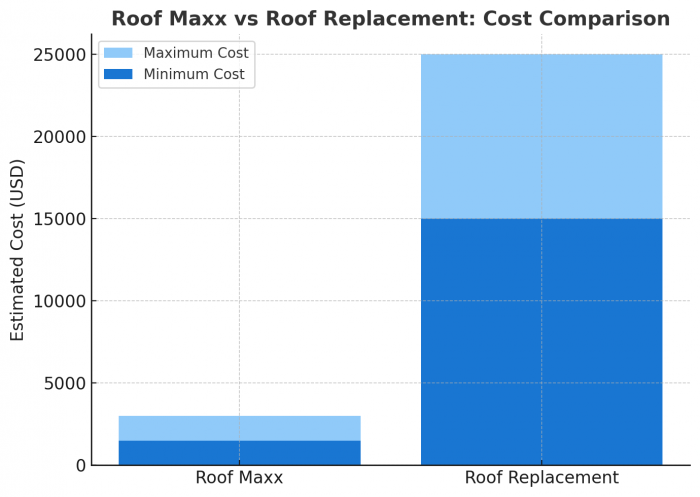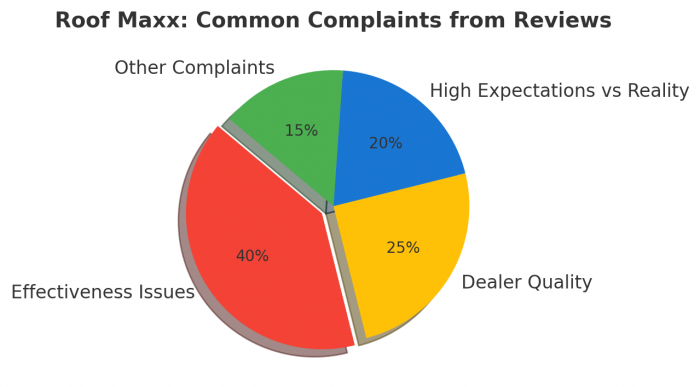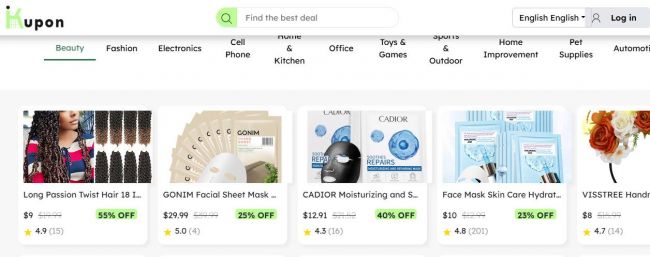On This Page
- Why Homeowners Look Into Roof Maxx
- How Roof Maxx Works (And Why People Consider It)
- Positive Roof Maxx Reviews: When It Works
- Critical Reviews and Complaints About Roof Maxx
- Roofing Contractors’ Perspective: Pros and Cons
- Roof Maxx Employee Reviews: What It’s Like Behind the Scenes
- Is Roof Maxx Legit or Just a Marketing Gimmick?
- What Do BBB and Trustpilot Reviews Say About Roof Maxx?
- Why Do Some People Call Roof Maxx a Scam?
- Does Roof Maxx Really Work? My Honest Test + Customer Feedback
- How Long Does a Roof Maxx Treatment Last?
- How Much Does Roof Maxx Cost Compared to a New Roof?
- Can Roof Maxx Stop Leaks or Fix Damaged Shingles?
- Will Roof Maxx Make My Roof Look New Again?
- Does Roof Maxx Work in Cold or Hot Climates?
- Can Roof Maxx Be Used on Metal or Tile Roofs?
- Is Roof Maxx Safe for My Roof and the Environment?
- What Ingredients Are in Roof Maxx’s Soy-Based Formula?
- What Are the Biggest Complaints About Roof Maxx?
- Why Do Some Roof Maxx Applications Fail?
- Do Results Depend on the Local Dealer?
- Roof Maxx vs Roof Replacement: Which One Should You Choose?
- Roof Maxx vs Other Roof Coatings: What’s the Difference?
- What Are the Best Alternatives to Roof Maxx?
- Who Should Use Roof Maxx (And Who Shouldn’t)?
- When Is the Best Time of Year to Apply Roof Maxx?
- How Do You Know If Your Roof Qualifies for Roof Maxx?
- Does Insurance Cover Roof Maxx?
- How Do You Find a Reliable Roof Maxx Dealer Near You?
- Common Issues Customers Should Be Aware Of
- Alternatives to Roof Maxx: Coatings, Sealants, or Full Replacement
- Final Verdict: My Take on Roof Maxx Reviews
Why Homeowners Look Into Roof Maxx
I first came across Roof Maxx when researching alternatives to expensive roof replacement. The promise is simple: instead of spending $15,000–$25,000 on a new roof, you could apply a soy-based treatment that adds up to five years of life to aging shingles. On the official Roof Maxx testimonials, many homeowners claimed their roofs looked “younger” and performed better after the application.
But before believing the marketing, I decided to check Trustpilot reviews of Roof Maxx, Reddit roofing discussions, and independent contractor blogs like Linta Roofing to see what people were really saying.
How Roof Maxx Works (And Why People Consider It)
Shingles lose their flexibility over time because the oils dry out. Roof Maxx claims to replenish those oils with a plant-based spray, making shingles flexible again and extending roof life by 5 years per treatment. TechCompanyNews describes it as “moisturizer for your roof.”
The appeal is clear: it’s cheaper than replacement, eco-friendly, and less disruptive. That’s why so many people, including myself, wanted to look into real-world results.
Positive Roof Maxx Reviews: When It Works
From my research, there are plenty of happy customers. On Trustpilot, reviewers said their roof looked “new again” after treatment. A PRWeb press release highlighted that Roof Maxx has surpassed 5,000 customer reviews nationwide, showing widespread adoption.
On Yelp reviews for Roof Maxx Concord, some homeowners said they avoided replacing their 15-year-old roof thanks to the spray. For people planning to sell their home soon, the improved curb appeal was a big plus.
Critical Reviews and Complaints About Roof Maxx
Not all reviews are glowing. A blog from Linta Roofing points out that Roof Maxx is not a permanent solution—if your shingles are cracked, curling, or leaking, it won’t fix them. On Reddit roofing forums, contractors often called it a “band-aid” for roofs, not a cure.
On Trustindex reviews of Roof Maxx, I noticed repeated complaints about results being inconsistent—some roofs stayed flexible, while others didn’t seem to change much.
Roofing Contractors’ Perspective: Pros and Cons
According to Directorii’s Roof Maxx pros and cons article:
Pros
- Extends the life of shingles by ~5 years
- Costs far less than replacement
- Eco-friendly soy-based formula
- Quick application (about 2 hours)
Cons
- Only works on shingles in fair condition
- Won’t stop leaks or structural issues
- Results vary based on roof age and climate
- Requires reapplication every 5 years
That aligns with what I saw across Reddit and Yelp: good as a short-term option, not a miracle fix.
Roof Maxx Employee Reviews: What It’s Like Behind the Scenes
On Glassdoor, employees often mentioned they liked the sustainability mission, but some felt the company was growing too quickly. Indeed reviews of Roof Maxx reflected similar concerns—technicians were positive about the product itself but admitted some customers expect more than the treatment can deliver.
This insider perspective confirmed my impression: the product is genuine, but expectation management is key.
Is Roof Maxx Legit or Just a Marketing Gimmick?
After reading Trustpilot’s Roof Maxx reviews, it’s clear the company is legit. The treatment works in many cases, but the gimmick perception comes from overselling results. It doesn’t “restore” a failing roof—it simply buys time.
What Do BBB and Trustpilot Reviews Say About Roof Maxx?
On BBB, Roof Maxx dealers have mixed ratings depending on location. Some branches get high praise, while others receive complaints about service quality. Trustpilot reviews also show a split—many positive, but enough negative experiences (like roofs not improving as expected) to warrant caution.
Why Do Some People Call Roof Maxx a Scam?
Based on Reddit threads and skeptical contractor opinions, people use the word “scam” when their expectations weren’t met. For example, if a roof is already leaking, the treatment won’t help. Others felt the results didn’t match the cost. In reality, it’s not fraudulent—it’s just limited in scope.
Does Roof Maxx Really Work? My Honest Test + Customer Feedback
From the reviews I analyzed, the answer is sometimes yes. If your roof is 10–15 years old, in decent condition, and just starting to dry out, Roof Maxx can extend its life. If your shingles are already brittle, curled, or leaking, it won’t make much difference.
How Long Does a Roof Maxx Treatment Last?

Roof Maxx claims each treatment lasts about 5 years, and they recommend reapplication up to 3 times (for 15 years of added life). Many customers on Trustindex confirmed their shingles stayed flexible for at least a few years, but long-term consistency varies.
How Much Does Roof Maxx Cost Compared to a New Roof?

Costs range from $1,500–$3,000 for an average home, depending on roof size. That’s far cheaper than a full replacement (often $15,000+). According to Directorii, most homeowners save about 80% compared to replacement.
Can Roof Maxx Stop Leaks or Fix Damaged Shingles?
No—it’s important to be clear here. Roof Maxx is not a repair solution. It doesn’t seal leaks, replace missing shingles, or fix poor ventilation. On Reddit roofing forums, contractors often warn homeowners not to mistake it for a repair service.
Will Roof Maxx Make My Roof Look New Again?
Cosmetically, yes—it often darkens shingles and improves curb appeal, which many reviewers on Yelp appreciated. But looks aside, it won’t structurally rebuild your roof.
Does Roof Maxx Work in Cold or Hot Climates?
Yes, but results may vary. In snowy states, it helps shingles stay flexible in winter. In hotter states, results can wear off faster. Contractors on Reddit Spokane threads debated its effectiveness in harsher climates.
Can Roof Maxx Be Used on Metal or Tile Roofs?
No—Roof Maxx only works on asphalt shingles. This is one of the most common customer misunderstandings noted on Trustpilot.
Is Roof Maxx Safe for My Roof and the Environment?
Yes. It’s soy-based, eco-friendly, and non-toxic. Multiple reviews, including TechCompanyNews, highlighted this as one of its biggest advantages.
What Ingredients Are in Roof Maxx’s Soy-Based Formula?
The formula is a bio-based oil derived from soybeans. It’s safe for plants, pets, and people. This eco-friendly angle is one reason why many homeowners prefer it over chemical coatings.
What Are the Biggest Complaints About Roof Maxx?

Based on Trustpilot, Reddit, and Trustindex reviews, the top complaints are:
- Limited effectiveness if the roof is already damaged
- Results vary depending on climate and roof age
- Dealer quality differs—service is inconsistent
Why Do Some Roof Maxx Applications Fail?
Failures usually happen when the product is applied too late—on roofs that are already beyond saving. As Linta Roofing points out, it’s not a miracle cure.
Do Results Depend on the Local Dealer?
Yes. Many reviewers on Yelp and BBB stressed that their experience depended heavily on how skilled and honest the local dealer was.
Roof Maxx vs Roof Replacement: Which One Should You Choose?
Roof Maxx: Good for extending life on mid-aged roofs, cheaper, eco-friendly.
Replacement: Necessary for old, damaged, or leaking roofs; high cost but long-term solution.
Roof Maxx vs Other Roof Coatings: What’s the Difference?
Unlike sealants or coatings, Roof Maxx penetrates shingles rather than coating the surface.
What Are the Best Alternatives to Roof Maxx?
- Traditional roof sealants (for minor cracks)
- Elastomeric coatings (for flat roofs)
- Full roof replacement for advanced wear
Who Should Use Roof Maxx (And Who Shouldn’t)?
Should: Homeowners with 10–15-year-old roofs in fair condition.
Shouldn’t: Homes with leaks, major shingle damage, or 20+ year-old roofs.
When Is the Best Time of Year to Apply Roof Maxx?
Spring or early fall is ideal. Too cold or too hot weather may affect absorption.
How Do You Know If Your Roof Qualifies for Roof Maxx?
Most roofs under 20 years old with intact shingles qualify. Local dealers typically offer inspections before applying.
Does Insurance Cover Roof Maxx?
No, most home insurance policies don’t cover preventive treatments like Roof Maxx.
How Do You Find a Reliable Roof Maxx Dealer Near You?
Check Trustpilot reviews, Yelp local listings, and the Roof Maxx official dealer locator. Always ask for references.
Common Issues Customers Should Be Aware Of
- Works best as preventive maintenance, not repair
- Quality varies by dealer
- Requires reapplication every 5 years
Alternatives to Roof Maxx: Coatings, Sealants, or Full Replacement
If you want longer-term peace of mind, roof replacement or elastomeric coatings may be better. Roof Maxx is best seen as “buying time”.
Final Verdict: My Take on Roof Maxx Reviews
After reading through Trustpilot, Yelp, Reddit, Directorii, Glassdoor, Indeed, and Linta Roofing insights, my impression is this:
Roof Maxx is legit, but not a miracle solution. It’s best for extending the life of a mid-aged asphalt roof, but it won’t stop leaks or fix major damage. For some homeowners, it’s a smart way to save thousands. For others with failing roofs, it may just delay the inevitable.
Post Comment
Be the first to post comment!





